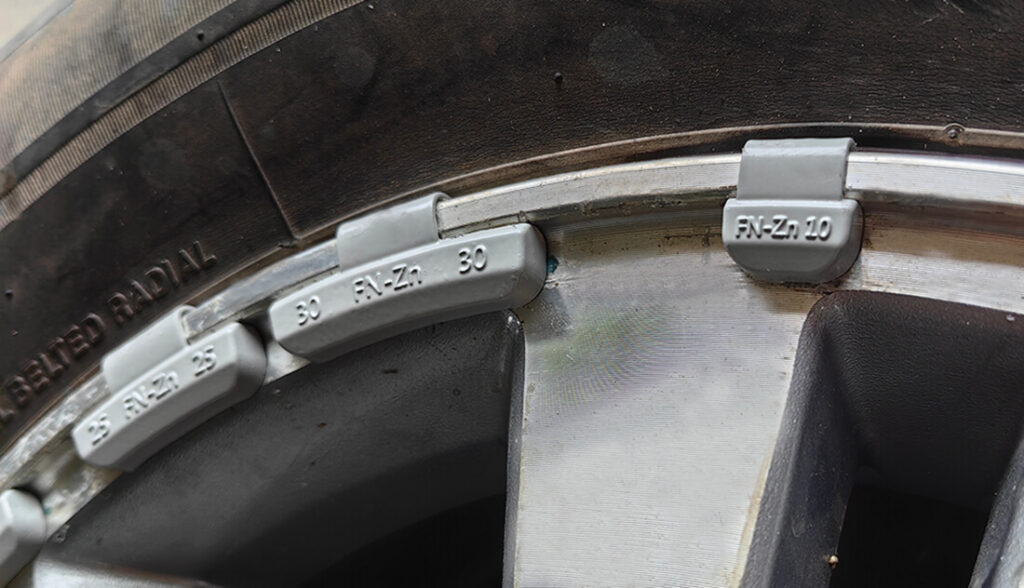Why Are Wheel Weights Necessary?
Wheel weights are essential for proper tire balancing, which ensures a smooth, vibration-free ride, prolongs tire life, and prevents premature wear on suspension components. Here’s a detailed breakdown of their importance:
1. Corrects Tire/Wheel Imbalance
Tires and wheels are never perfectly balanced from manufacturing due to:
- Slight weight variations in rubber.
- Imperfections in wheel casting.
- Valve stem placement adding asymmetry.
Unbalanced wheels cause uneven centrifugal forces, leading to vibrations.

2. Prevents Vehicle Vibrations
- Imbalance causes steering wheel shake (usually at 50–70 mph).
- Seat/floor vibrations indicate rear wheel imbalance.
- Excessive shaking leads to driver fatigue and reduced control.
3. Extends Tire Life
- Unbalanced tires wear unevenly (e.g., cupping or scalloping).
- Premature wear forces early replacement, increasing costs.
4. Protects Suspension & Drivetrain
Constant vibrations stress:
- Shocks & struts (reducing lifespan).
- Wheel bearings (causing premature failure).
- CV joints & differentials (in AWD/4WD vehicles).
5. Improves Fuel Efficiency
- Imbalanced wheels create rolling resistance, forcing the engine to work harder.
- Proper balancing can marginally improve gas mileage.
6. Ensures Safety
Severe imbalance can lead to:
- Loss of traction in wet/slippery conditions.
- Blowouts from excessive heat buildup.
When Are Wheel Weights Needed?
- New tire installation (balancing is mandatory).
- After a tire repair (patch/plug can change balance).
- When vibrations occur (rebalancing checks required).
- Seasonal tire changes (winter/summer swap).
Types of Imbalance Wheel Weights Fix
| Type | Cause | Solution |
| Static Imbalance | Weight unevenly distributed vertically (up/down). | Single-plane balancing (weights on one side). |
| Dynamic Imbalance | Weight unevenly distributed horizontally (side-to-side). | Dual-plane balancing (weights on both inner/outer edges). |
What Happens Without Wheel Weights?
✖ Annoying vibrations at highway speeds.
✖ Uneven tire wear (reducing tread life by 20–30%).
✖ Costly suspension repairs over time.
✖ Reduced braking & handling performance.
Conclusion
Wheel weights are a small but critical component in vehicle maintenance. Ignoring balance issues leads to higher long-term costs, safety risks, and a rougher ride. Always ensure your tires are properly balanced after installation or repairs.
